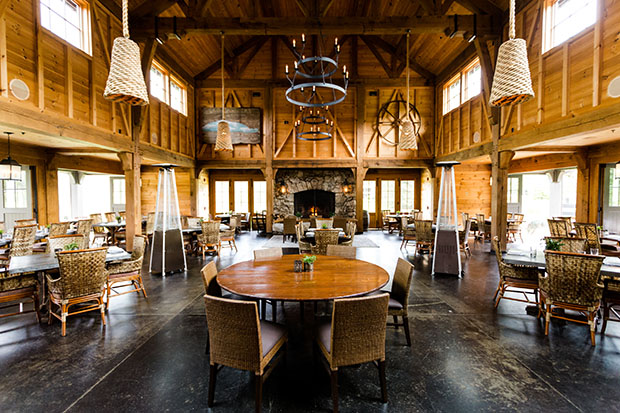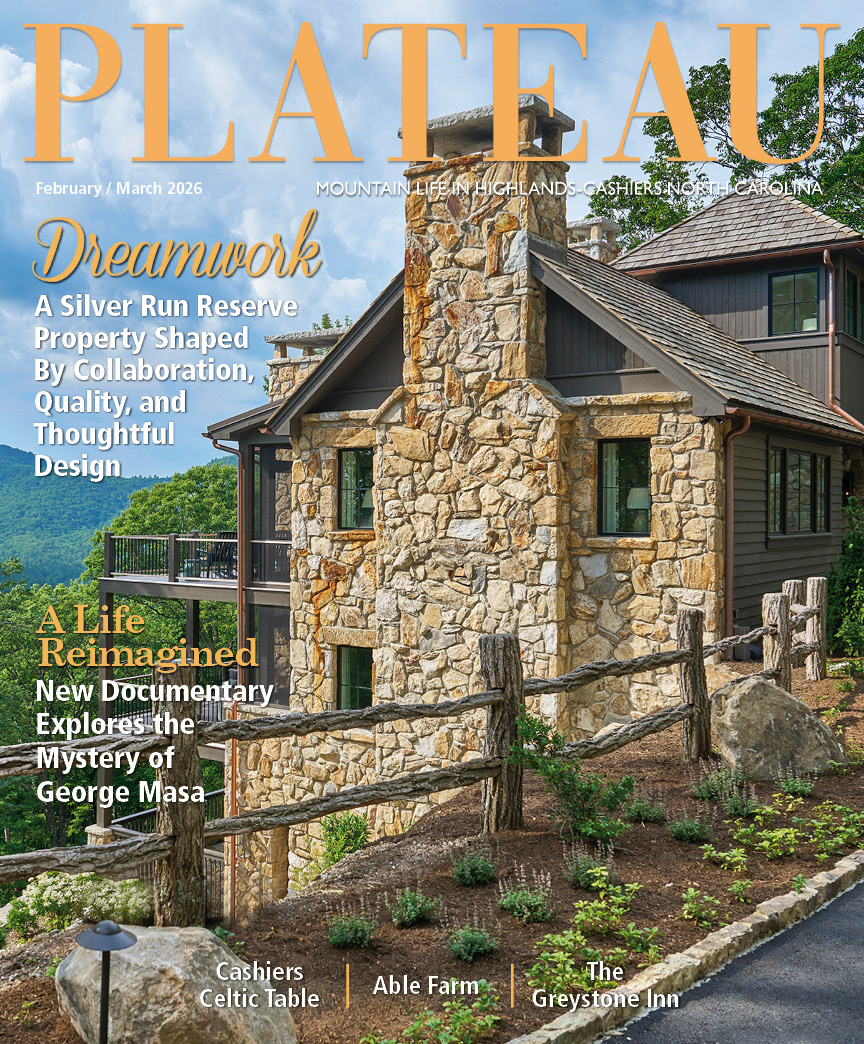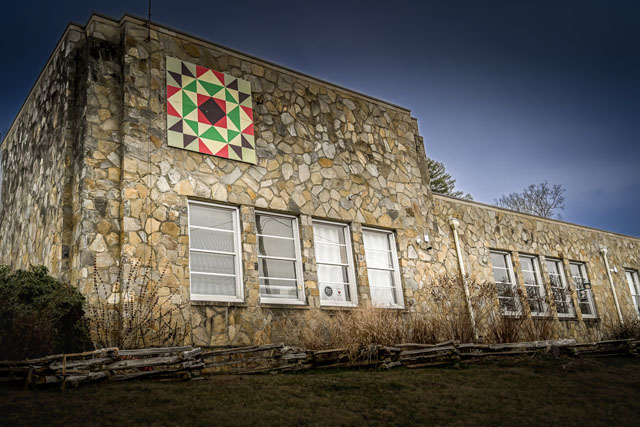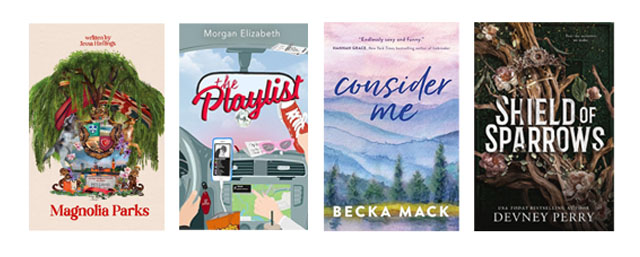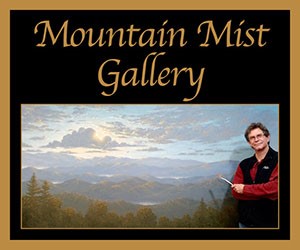Depicting Appalachia
08 Jun 2021
In the Cullowhee Valley with Ron Rash
By Marianne Leek
Photos by Daniel Dent, Marianne Leek
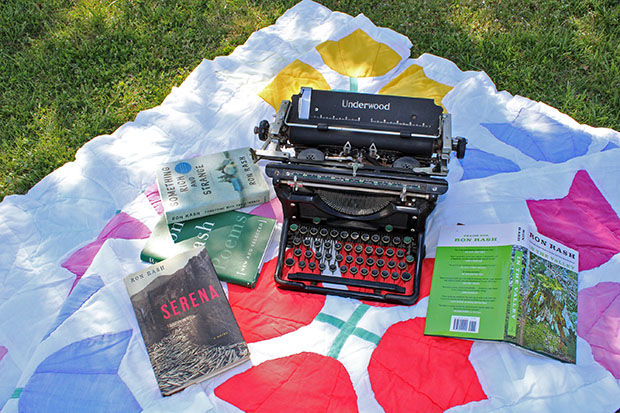
The literary canon of Ron Rash is like a patchwork quilt, piecing and stitching together voices and characters whose stories span from the Civil War to the present day, and most of which are set in the Appalachian mountains of western North Carolina. In his most recent collection, he includes nine short stories and his first novella that revisits the ruthless character many readers love to hate, Serena Pemberton.
Recently, I sat down with Rash at Western Carolina University, where he is the Parris Distinguished Professor in Appalachian Cultural Studies, to discuss his writing career and “In the Valley.” I asked him about his decision to re-imagine characters and stories, which he has done on several occasions. Serena made her first appearance in the short story “Pemberton’s Bride” in “Chemistry and Other Stories.” He explains, “When I wrote that story, I already knew I was going to write a novel, but I thought it could work as a short story as well.”
Rash admitted that writing a novella inspired by “Serena” was one of the most difficult things he’s ever done. “To get those 70 or 80 pages took over two years and a lot of drafts.” Inspired by Elizabethan literature, he wrote much of the dialogue of “In the Valley” in iambic pentameter. He laughs, “It was so much fun to render Appalachian dialect in the same metric used by Elizabethan playwrights. I’ve always loved how a playwright such as Marlowe has such over-the-top characters and plots, and I had that in mind in both ‘Serena’ and ‘In the Valley.’ My hope is that connecting a story about 1930s Appalachia to an older literary tradition adds another level of enjoyment for a reader. It certainly made the books more interesting to write.” Rash adds that writing “Serena” was also, at times, a disturbing experience. “It was such a dark book, and I was writing 10-12 hours a day. I was so absorbed in it I finally had to back off a bit because I was starting to spiral down into something too close to mania.”
Rash discussed the stories from “In the Valley.” “‘Neighbors,’ though set in the 1800s, is really about what’s happening in the United States right now, and ‘Ransom’ and ‘Flight’ are stories that are very different than anything I had ever tried.” But his favorite in the collection? “The one about Paleolithic cave art (‘L’homme Blessé’). I’ve always been fascinated with how old humanity’s impulse to create art is. I thought connecting such ancient art to healing a war-ravaged American soldier would create an interesting story.”
“In the Valley” is particularly special because it is dedicated to Rash’s first grandson, Collins Lee Rash. Asked if there is a story he feels most connected to, he responded, “‘The Belt.’ It’s a story about the love of a grandfather for his grandson. There is definitely a personal part of me in that one.”
Another example of revisiting a story or character can be seen with one of Rash’s most popular short stories found in a previous collection, the haunting tale “Something Rich and Strange,” a nod to Shakespeare’s “The Tempest.” Rash returned to the narrative penning the novel “Saints at the River.” He explained, “What I enjoy is the chance to take a story or a character in another direction. ‘Something Rich and Strange’ is a ghost story of sorts. The teacher has a seemingly mystical encounter with the deceased girl. The novel is purely realistic.”
I asked Rash to name his favorites - favorite novel, short story and poem - in his overall body of work. Without hesitation, he responded, “’ Serena’ and ‘One Foot in Eden.’ I like those two much above the others.” Favorite short story? “The Ascent,” a story loosely inspired by the Browning Knob plane crash, the wreckage of which can still be found in the mountains between Cherokee and Waynesville, NC. Favorite poem? ‘“Good Friday 1995, Driving Westward’ It’s about a graveyard in Buncombe County where my paternal grandparents are buried, seeing a long row of stones with RASH engraved on each.”
Asked how he would like to be remembered as a writer, Rash replied, “that I’ve depicted the people of our region without sentimentality or demonization. While I often place my characters in tough situations, my goal is to reveal the core of their humanity. A quote I love, Faulkner said, ‘Most men are a little better than their circumstances give them a chance to be.’” That sentiment seems to be the cornerstone of much of what Rash has written.
One thing readers might not know about Ron Rash is that he’s one of the kindest people you’ll ever meet, but before I left, I asked him to share something about himself that he thinks the average reader might not know. He responded, “That I have a sense of humor. So how about Ron Rash doesn’t have a raven croaking on his shoulder.” He laughs, “Yeah, that’s it - what would most surprise people is that Ron Rash doesn’t have a raven croaking ‘nevermore’ on his shoulder.”


